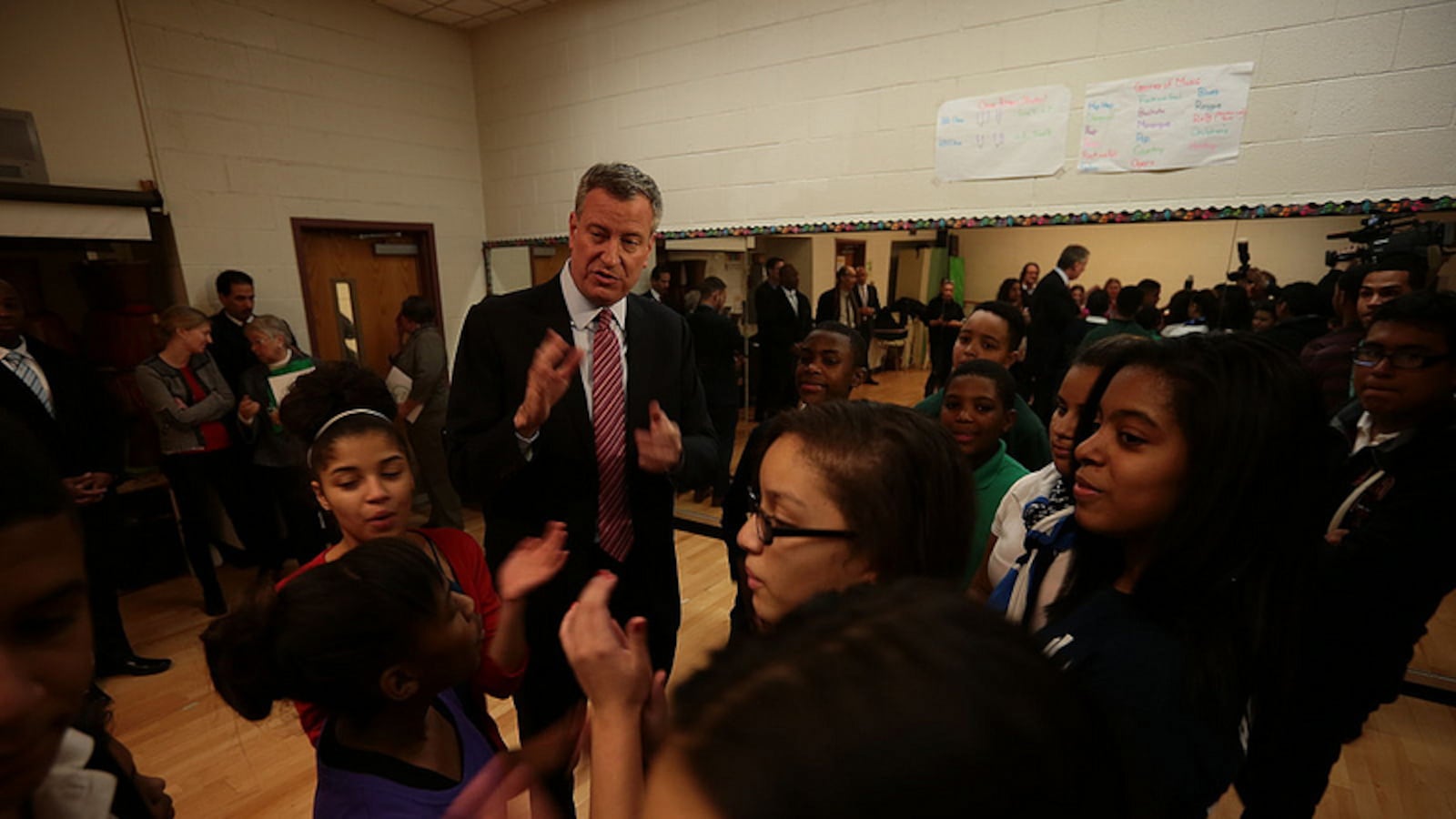When the mayor and schools chancellor stepped into a dance studio at M.S. 331 in the Bronx Thursday, they were greeted by stomping, clapping, chanting children.
“That’s a lively group,” Mayor Bill de Blasio told Principal Serapha Cruz after they left the after-school dance class.
Much of de Blasio’s energy since taking office has gone into the politics of getting expanded prekindergarten funded. But his proposed tax hike on top earners — which requires state approval — would also finance more after-school programs for middle school students.
He stopped by M.S. 331 Thursday to highlight a program that he said would benefit from the funding and to shift focus onto the middle-school benefits of a tax increase that has uncertain prospects.
Solid after-school programs help adolescents stay off the streets, build their confidence, boost their grades, and stay motivated to come to school, de Blasio said Thursday. The Bloomberg administration also sought to expand middle-school learning time, offering after-school literacy tutoring and enrichment to about 90 low-performing middle schools.
But budget cuts have resulted in some 30,000 fewer after-school seats over the past six years, de Blasio said. With proper funding, many more middle-school students could attend programs at schools, community centers, and libraries, he said.
“We need after-school programs to be available literally for every student who wants to take advantage of it,” de Blasio said.
Chancellor Carmen Fariña said schools would be given the flexibility to design programs that meet their students’ needs, and that their success would be judged by various measures, such as the quality of students’ end-of-the-year dance performances.
“There are many ways to assess kids that’s not just test-driven,” she said, echoing de Blasio’s promise to reduce the school system’s emphasis on standardized test scores.

Nearly half of M.S. 331’s students attend the school’s daily after-school program, which can last up to four hours some days, Cruz said.
The first hour involves homework help, small-group tutoring, or academic intervention for students grouped by reading level or math proficiency. The rest of the time is devoted to volleyball and basketball, dance and theater, guitar club, and a student “community board” program that teaches leadership skills.
Cruz funds about half of the program out of the school budget but must find grants to cover the rest, she said. De Blasio’s tax plan could save her from scrounging for money, she added.
“If there’s a sustainability factor to it,” she said, “then it will have a huge impact.”


